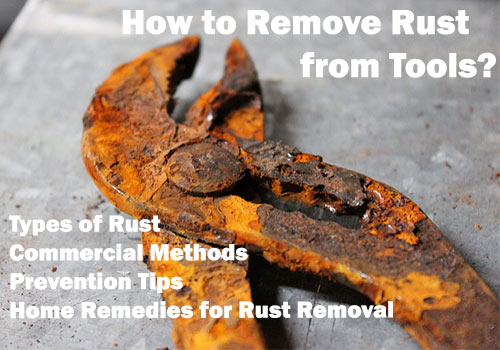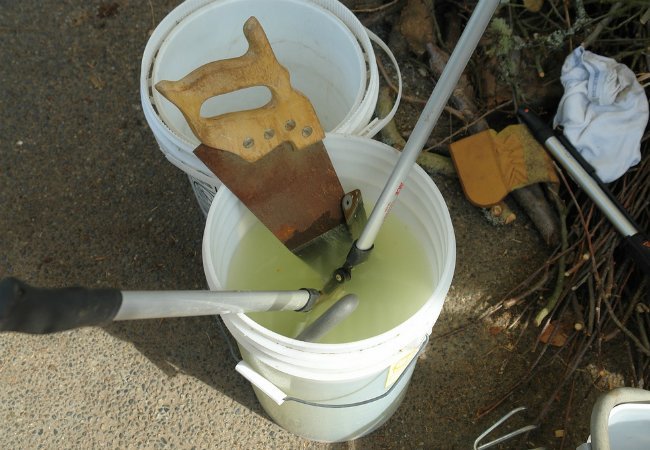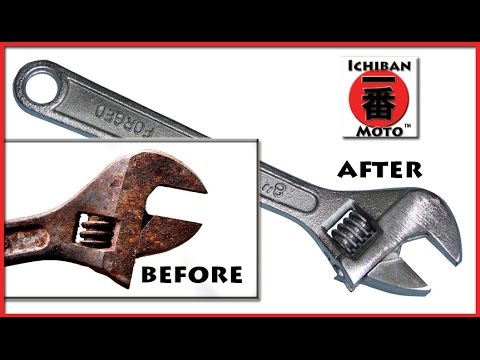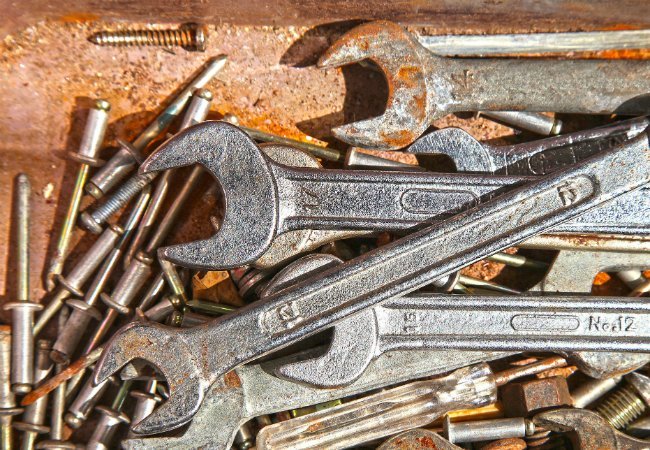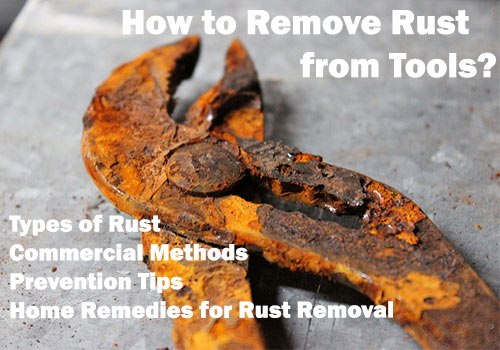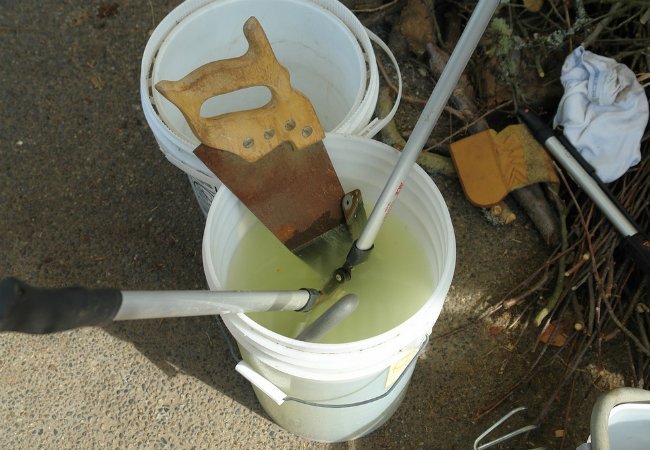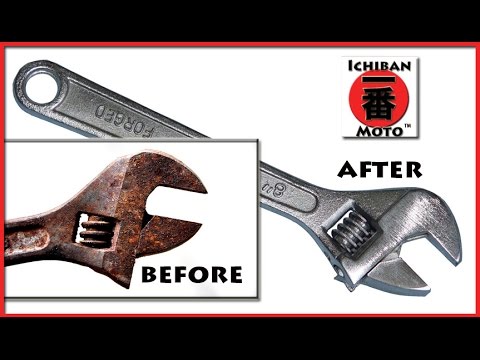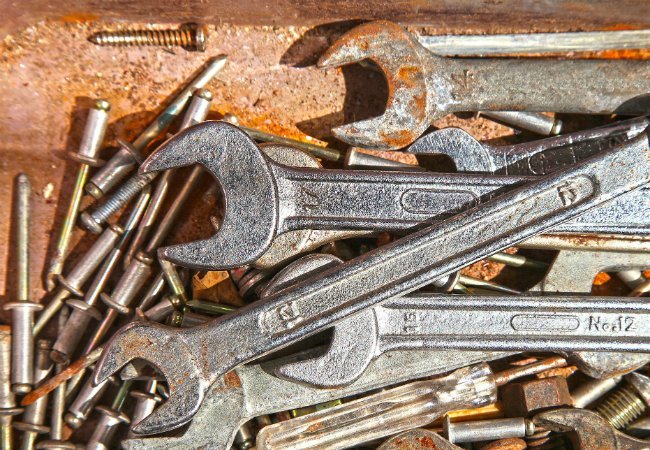Although metal is an extremely durable material, it has one major weakness: rust. Steel tools must be used continuously to avoid irreparable damage from this chemical process or at least regular maintenance. The problem is that we often notice this when it’s too late and a big brown stain is slowly eating away the metal. As long as the steel shows no physical damage, the rust can be removed. The following article will show you how to remove rust from tools to extend their lifespan.
Oxide is a natural process that occurs with some metals when they are exposed to moisture and oxygen for long periods. This manifests itself in corroded layers of brown color, as if it were a mushroom.

Like a parasite, the oxide penetrates the metal structure until it cracks or decays. However, the presence of rust alone is not enough to damage a metal tool. It must take a long time for this to happen. Even if you see rust on the tools, you can still clean them.
Removing rust from tools is a time-consuming task. So don’t despair if some methods don’t work.
How to remove rust from tools using physical methods
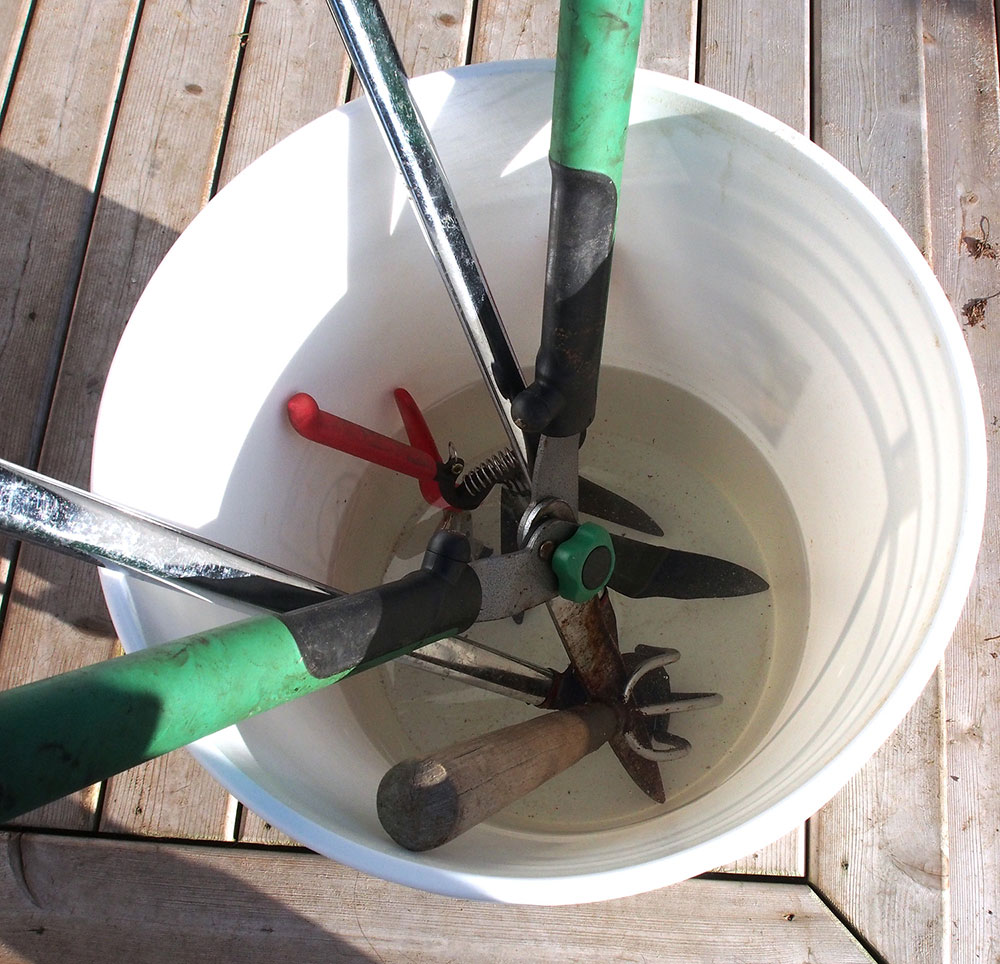
There are several ways you can use raw force to remove rust from steel and literally scrape it off the surface. Sometimes these options are not enough to remove the rust, but it never hurts to remove the thickest layers before working on internal damage.
Before you start sanding and scraping, you must first clean the tool with soap and water. Prepare a mixture of hot water and degreasing agent in a large container that you can dip your tools into.
Place the tool in the water and remove as much fat and oil as possible with a sponge. When you’re done, rinse the tool with clean water and dry it with a clean cloth. Leaving moisture on the steel can lead to more rust in the future.
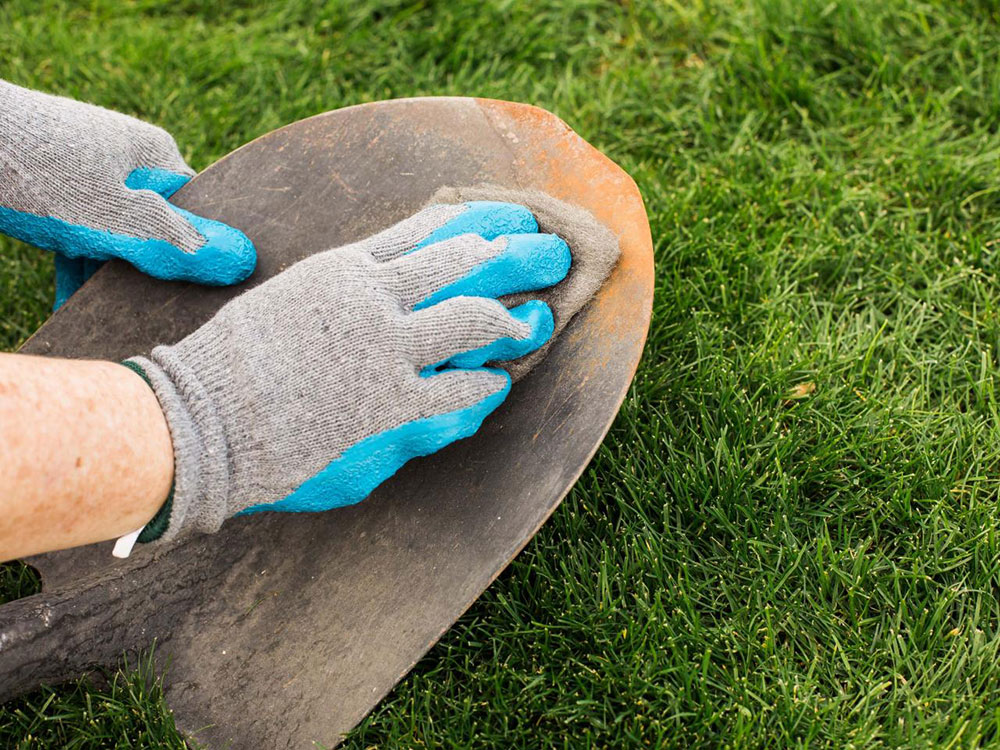
The next step in cleaning rusty tools is to remove the rust with a sanding pad. The type of pad used depends on the thickness of the grate you want to clean. The use of a steel sponge or sandpaper should be sufficient for thin-layer surfaces.
Always remember to start from the areas most affected by rust to use the hard bristles of the sanding pad. Then clean the thin layers.
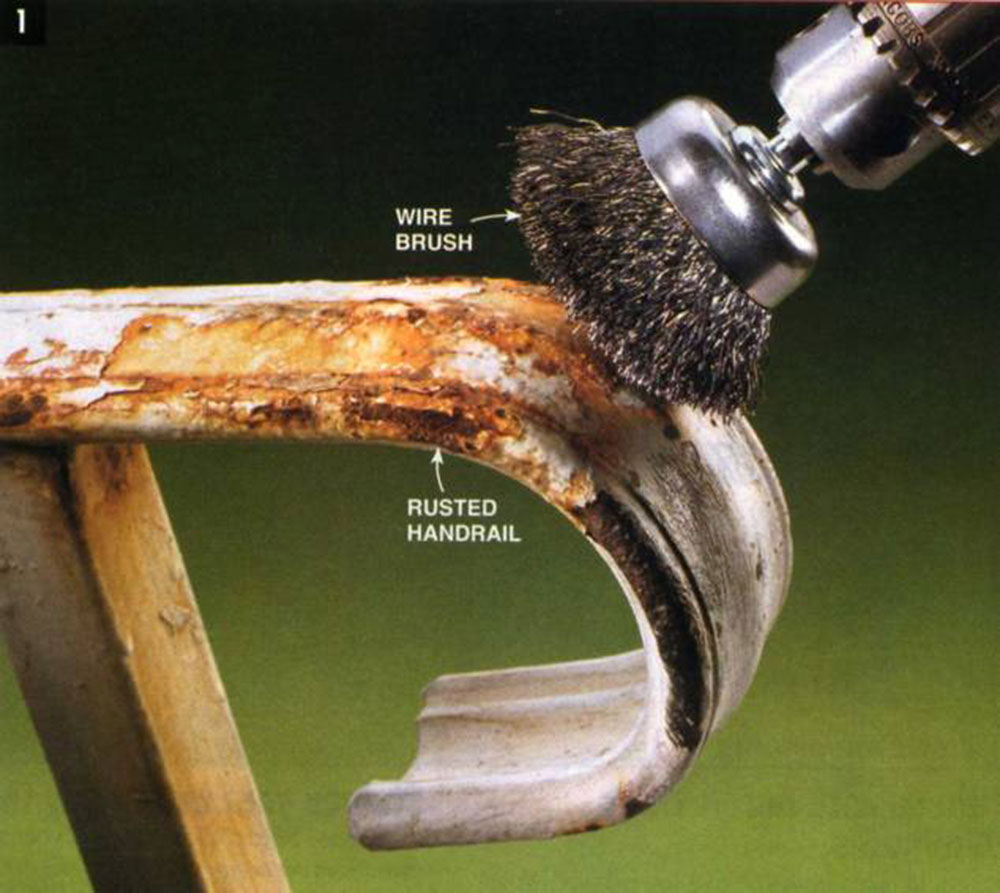
If the rust has not come out, use the last resource: a drill in combination with a spoke wheel. You will polish the tool until the rust comes out completely.
To avoid wear and tear on the disc, you must moisten the tool with a layer of kerosene. You have to wait until it dries a bit so that accidents do not occur when polishing.
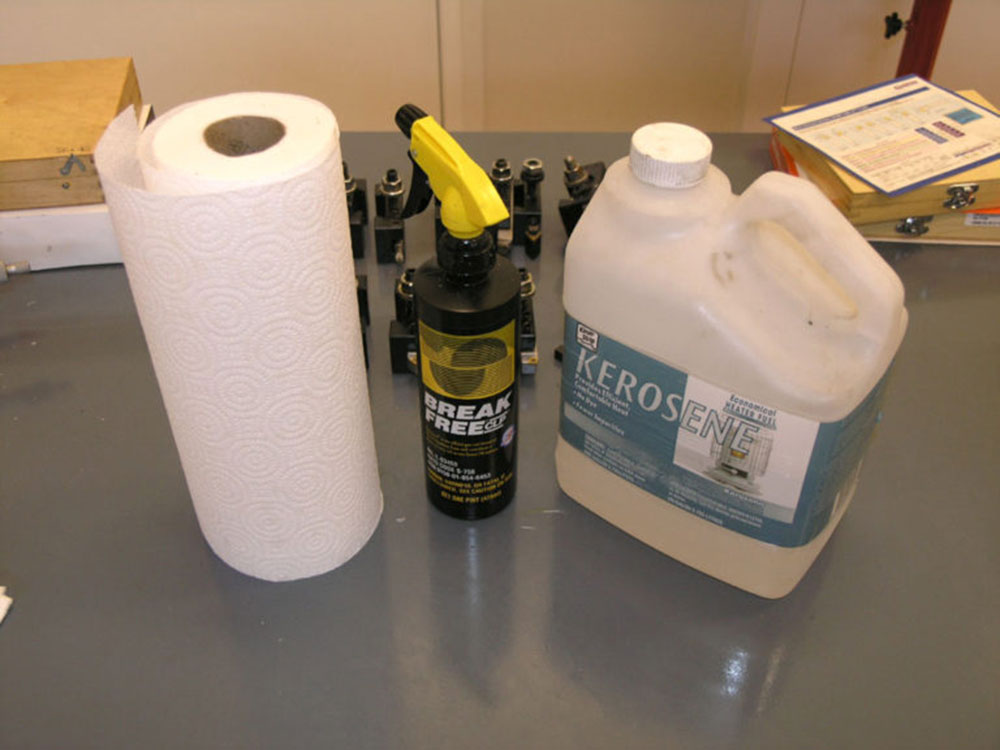
This rust removal tool leaves a rustic finish on the steel surface that can be smoothed with fine-grain sandpaper. This grinding process also removes rust residues.
Now all you have to do is clean the tool with water. Remember to dry it to prevent rust from appearing.
How to remove rust from tools with vinegar and salt
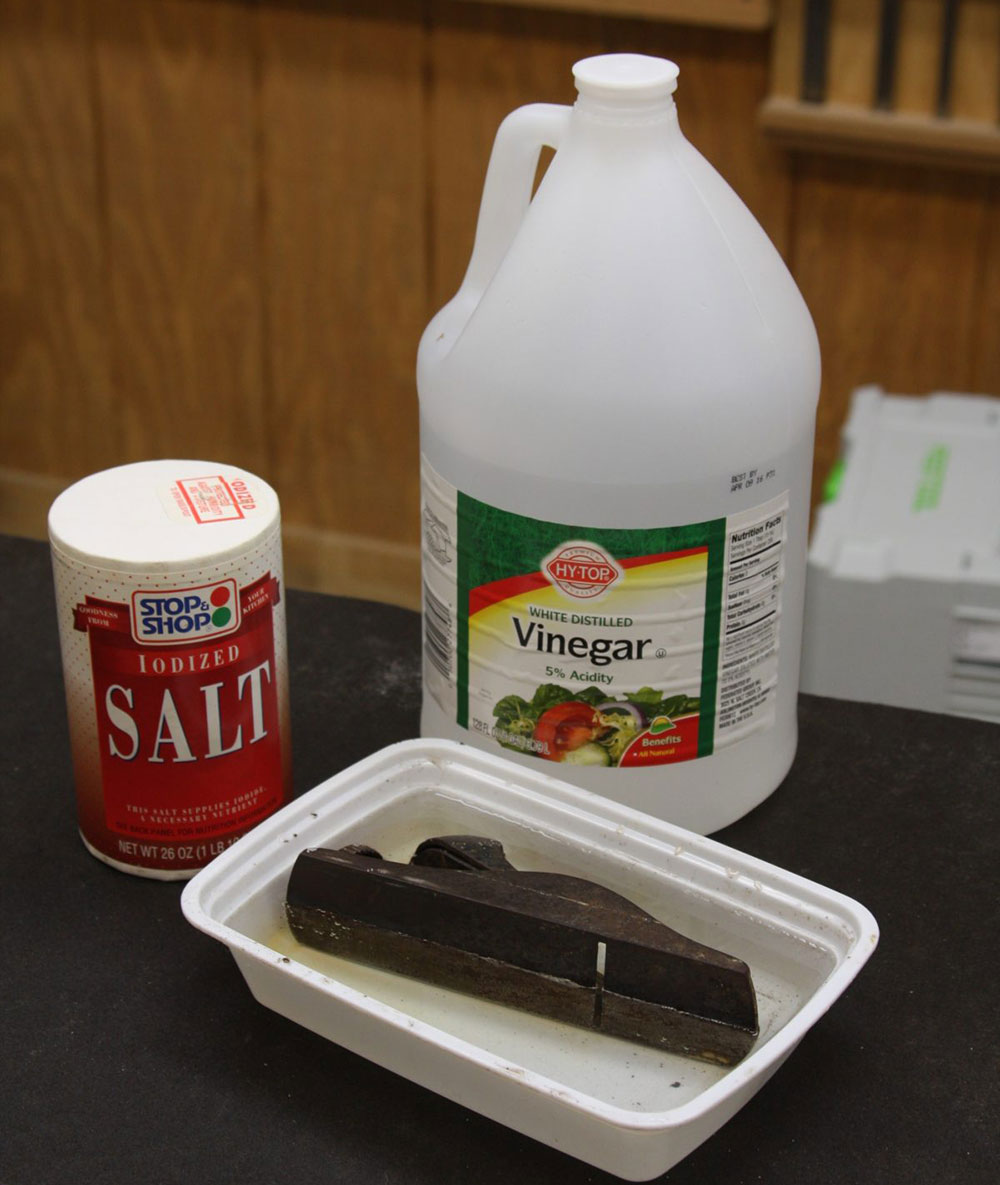
If the physical method didn’t work, it’s time to use the chemical options to clean rusty tools.
You may need to disassemble the tools for thorough cleaning. As with the physical method, you must first wash the various steel parts with hot water and degreasing detergent.
Vinegar in combination with salt slowly removes rust from tools. To do this, you have to immerse them in a vinegar bath in a container for about 2 to 3 days.
To make the mixture, you need to pour ¼ cup of salt for every liter of white vinegar. You need to pour the salt evenly or stir the vinegar after pouring the salt in so that it spreads.
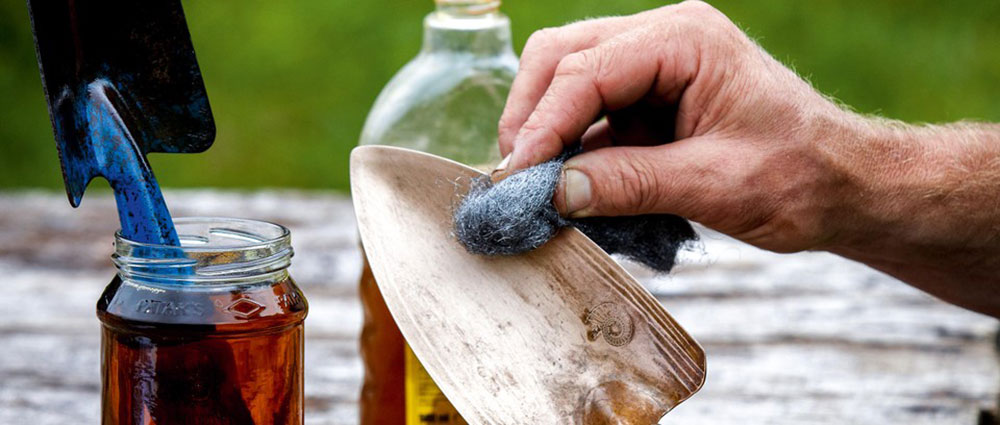
After 24 hours, the thicker rust should come off the tools. The thinner parts will probably not go away, but thanks to salt and vinegar they can now be easily removed.
Now carefully remove the tools from the vinegar-salt mixture. Gloves are recommended if you want to do it with your hands. It’s time to remove the most difficult residue with a metal sponge.
To remove all rust from the tools, you need to clean vigorously because rust appears in grains and streaks on the steel.
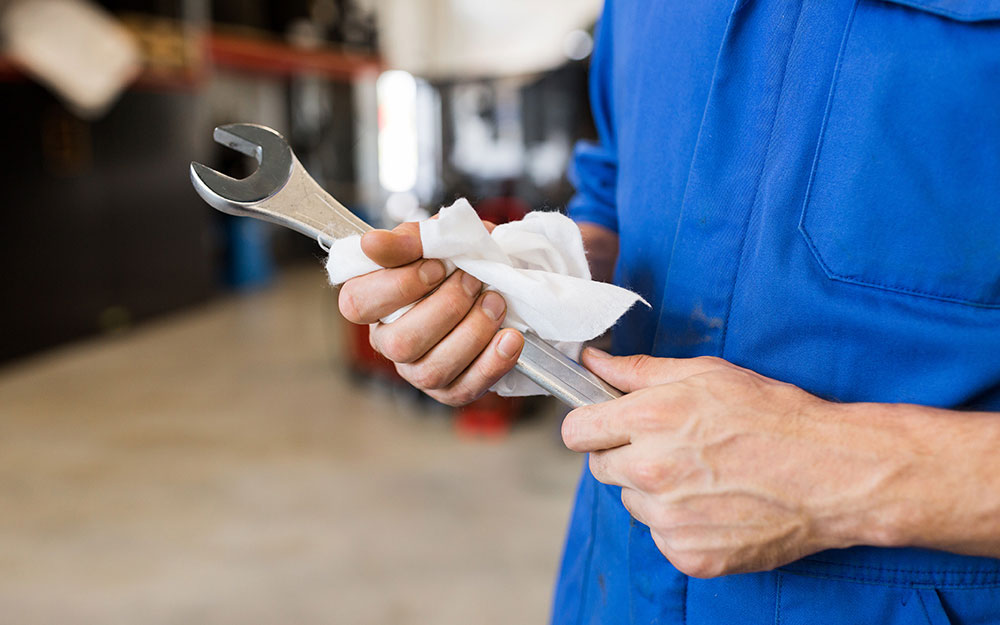
The next step to cleaning rusty tools is to wipe off the excess vinegar with absorbent towels. If you want your tools to regain their original shine, it is best to apply a layer of lubricating oil after they have dried completely, which acts as a protective barrier against rust.
Lemons are an alternative
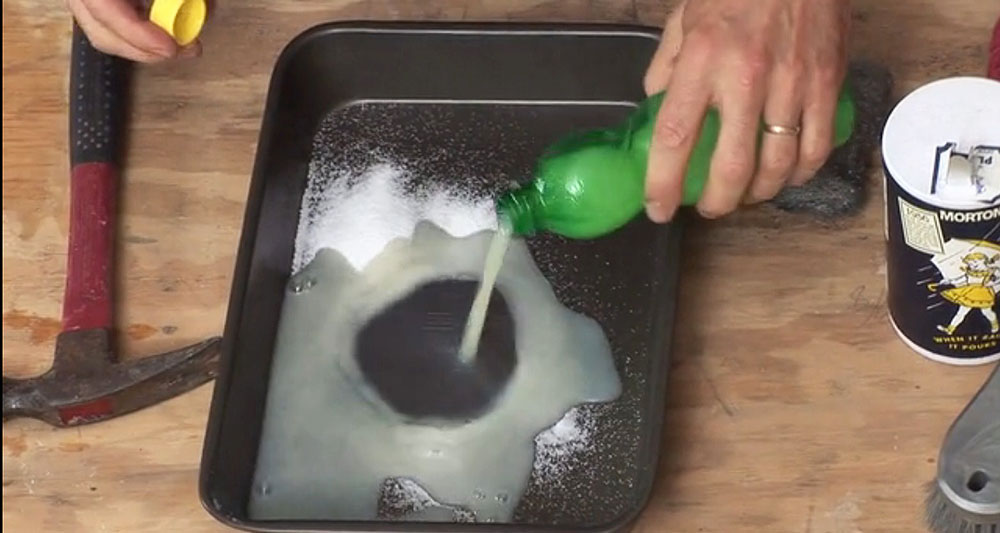
If you don’t have vinegar or don’t want to dispense it, you can replace it with lemon juice. Sure, you need a lot of lemon juice, but citric acid will work perfectly for this project. You can also use lemon juice to clean tools in general. You just have to remember to dry them in the end.
The only difference from the process is that at the end of the lemon soak, you need to apply a layer of baking soda to the steel to neutralize the acidic effects of the juice. Otherwise you cannot lubricate the tool.
Use baking soda for small jobs
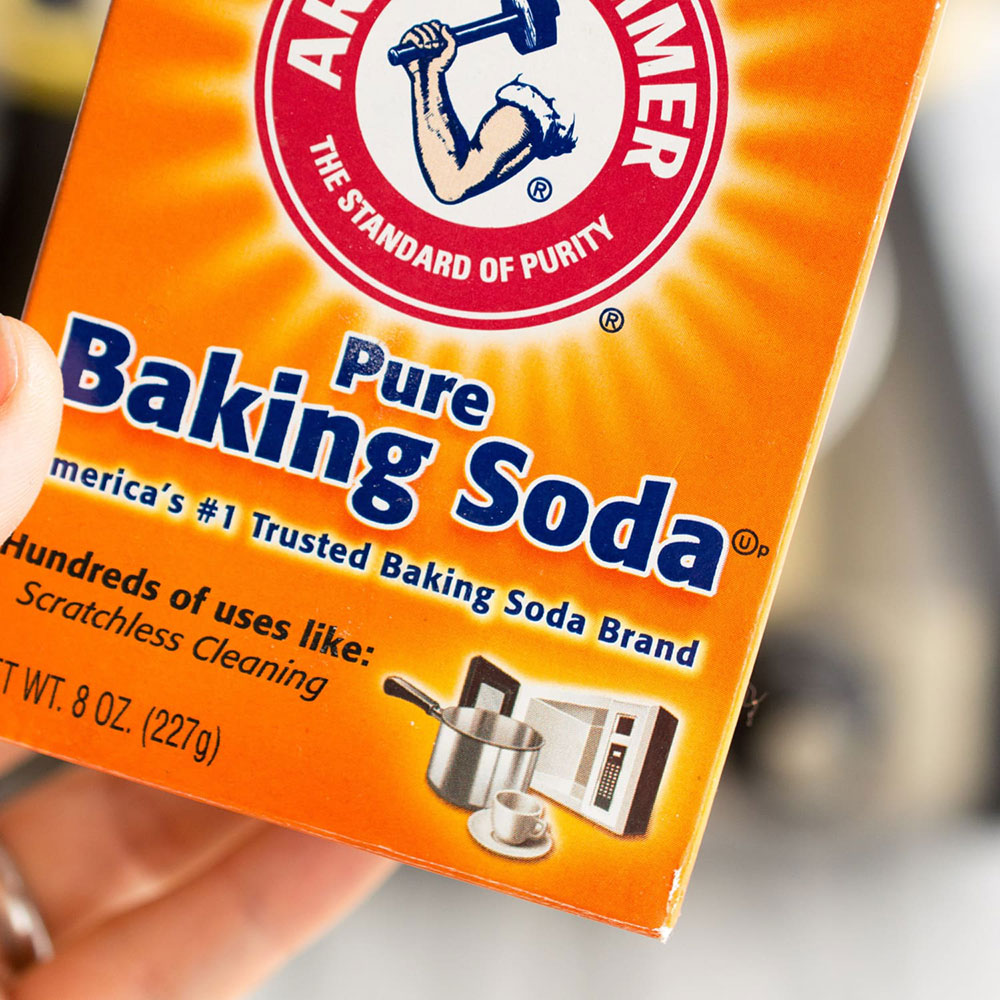
If the rust spots are not very big or you just want to do routine maintenance, you can use baking soda on the steel.
Not sure how to remove rust from tools with this cooking powder? Well it’s very simple! You have to prepare a pasta with it. Mix water with baking soda in a bowl until you get a pasty and liquid compound.
Put some paste on the affected areas and let them rest for a few hours or overnight. The caustic effect of bicarbonate should loosen the rust so that it can be easily removed with a brush. Pour clean water to remove dirt and dry the tool.
Use a rust converter for professional surfaces
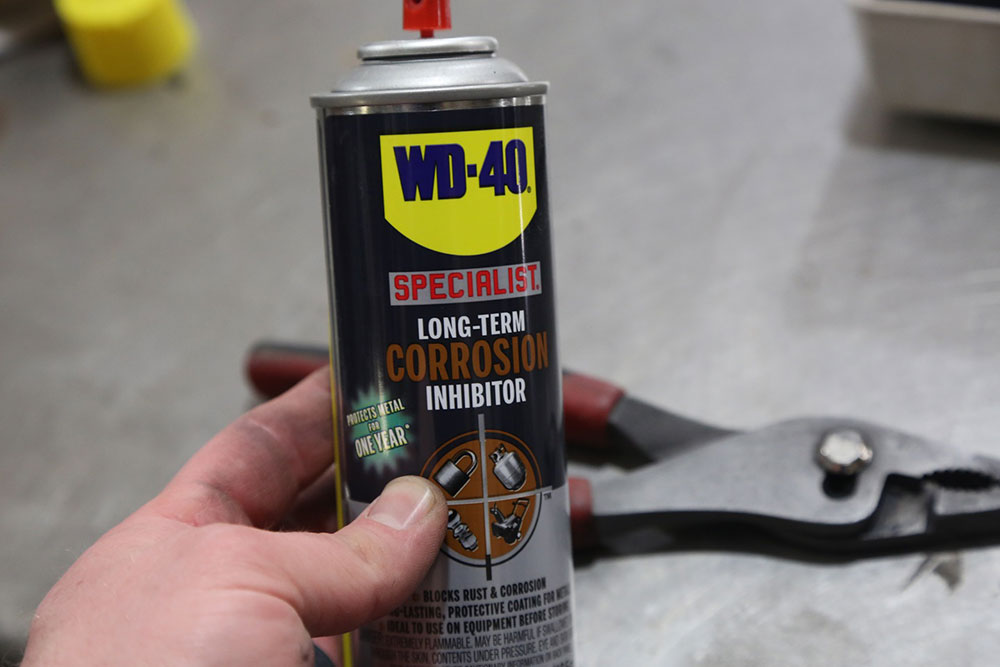
You can skip all homemade solutions and use a special rust neutralizer directly. Each neutralizer cleans your tools and you don’t have to remove the thickest layers of rust for hours.
The only shortcoming of these converters is that their abrasive effects leave a rustic texture on the steel. This can be a problem if you want to paint the tool later because you need to apply a primer that will serve as the basis for the paint’s adhesion.
Steel badly damaged by rust tends to melt if a rust converter is used. So be careful.
If everything else fails, use oxalic acid
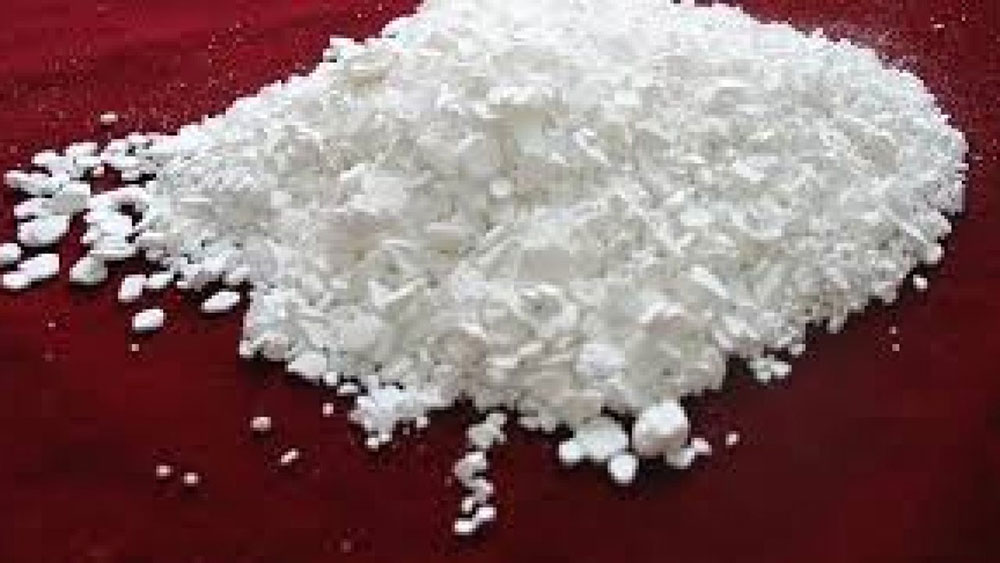
This is another commercial alternative, but it is much more dangerous and powerful than the previous one. Oxalic acid removes all types of rust, regardless of its severity.
Before applying, you should be prepared with safety equipment such as safety glasses and rubber gloves. Also use the acid in an area with adequate ventilation to avoid poisoning.
Clean your tools with grease-free soap and water and dry them. Now pour a gallon of water and three tablespoons of oxalic acid into a large container with enough space for your tools. Stir the mixture gently so that the acid dissolves.
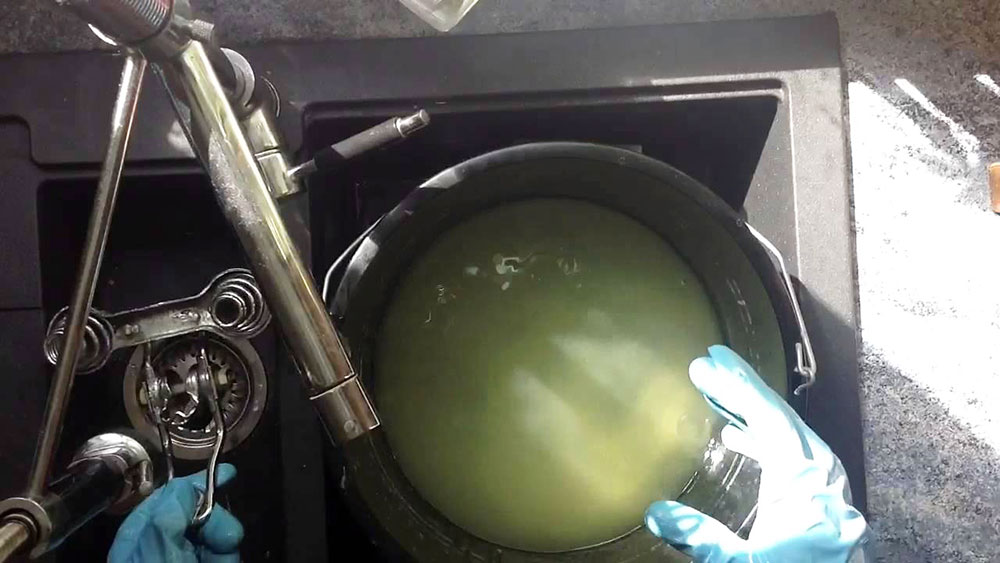
Place the tools in the mixture for 20 minutes. Take them out of the container, rinse them with plenty of water and dry them. You should no longer have rust stains.
Thorough cleaning by electrolysis
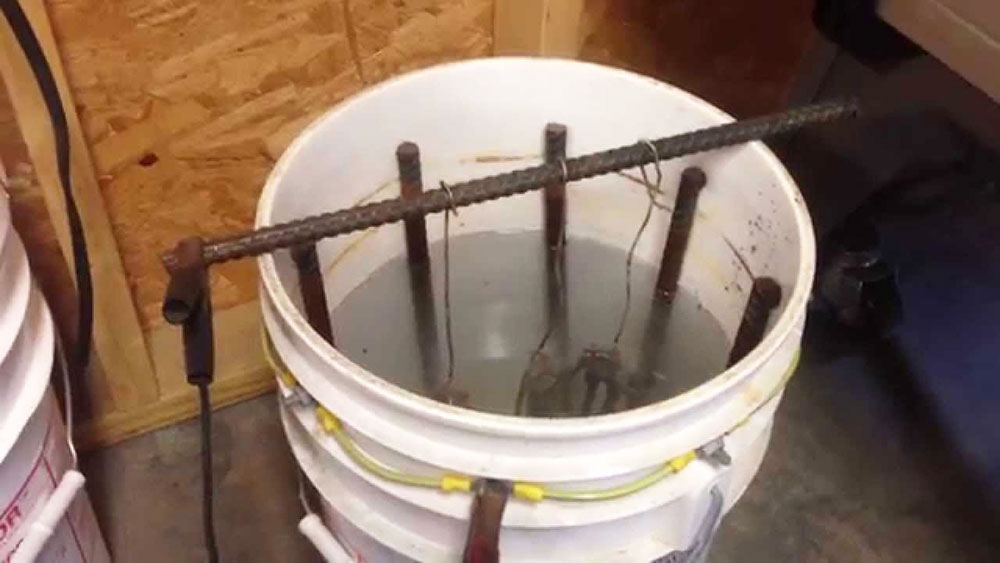
If there is something that cannot stand rust, it is an electric shock when immersed in water. The process known as electrolysis completely removes the rust without you having to actively participate in the cleaning.
To do this, you’ll need a container that you can fill with water, an iron bar that you don’t need (you’ll lose it), a battery charger, and washing soda.
If you want to know how to remove rust from tools using this procedure, we recommend that you carefully read the tutorials listed below.
Rust is best avoided
Regardless of whether you have just cleaned your tools or whether they are new, the best way to prevent rust from appearing on the steel. Although you can clean them several times, the metal will eventually no longer withstand the effects of rust and will irreparably damage it.
There are three basic tips you should use to prevent rust from appearing on the steel.
- Avoid moisture: The first cause of rust on tools is moisture. If you place a stone or moisture-wicking gel pack near the storage location, the risk of rust is significantly reduced.
- Water is the worst enemy: steel is not waterproof. If they get wet, dry them as soon as possible.
- Apply a layer against rust: butcher wax is an ideal lubricant to prevent rust from occurring. Some oils offer a similar result. Simply cover your tool with the connection you purchased to create a protective barrier.
If you liked reading this article about removing rust from tools, you should also read this:
 TopsDecor.com Home Decor Ideas
TopsDecor.com Home Decor Ideas
